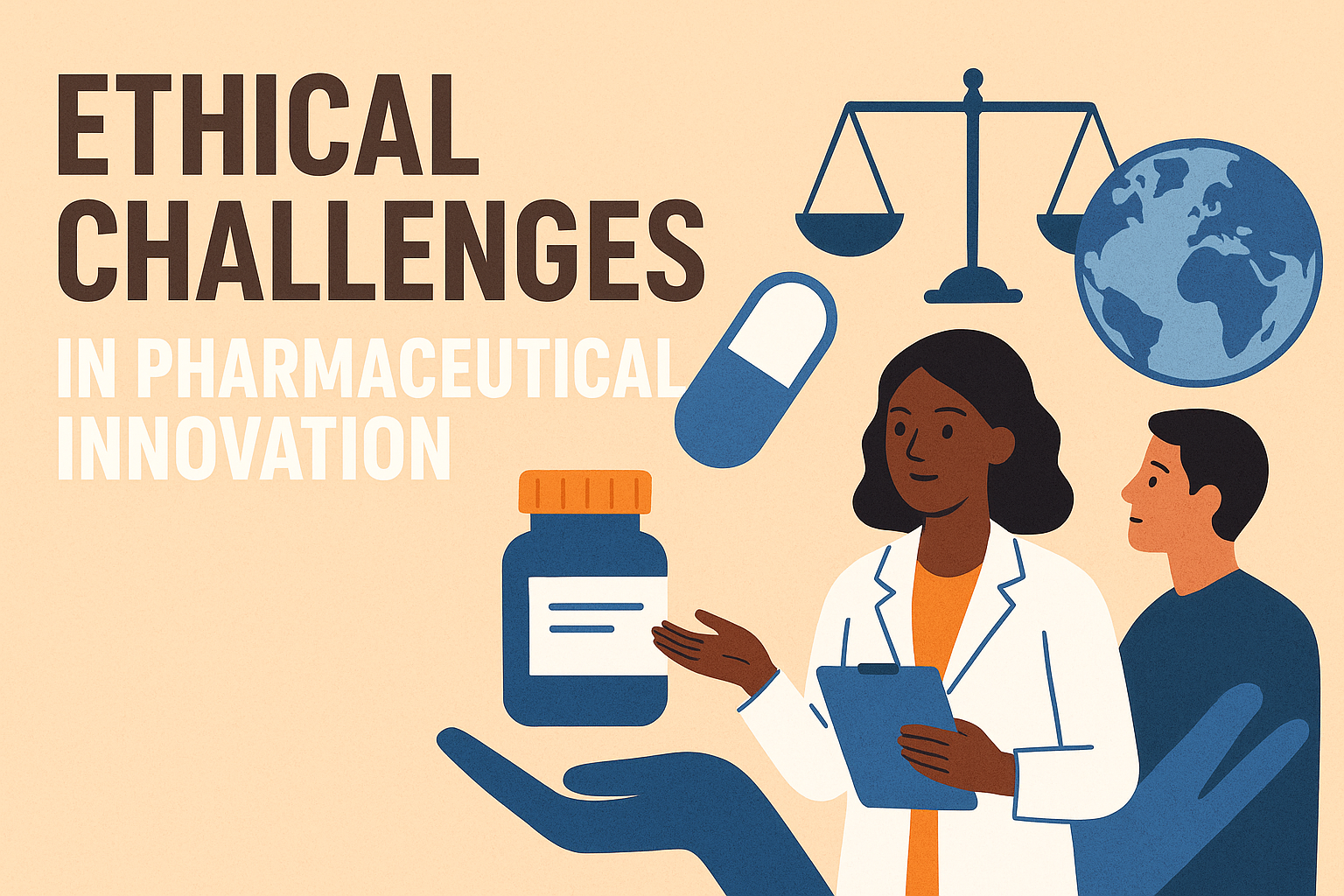
Pharmaceutical innovation has remained a pillar of contemporary healthcare, spearheading advances that save lives, enhance quality care, and increase longevity. From innovative oncology medications to new-generation biologics and personalized medicine, the pharma industry continues to revolutionize treatment paradigms. But with this enormous ability to innovate comes an equally relevant mandate: making progress consistent with ethical tenets.
Here, we discuss the most significant ethical issues of pharmaceutical innovation and their effects on patients, researchers, and society.
1. Scales of Innovation and Affordability
The most critical ethical challenge is the unaffordability of new medicines. It may take more than a decade and billions of dollars to develop a drug, but the prices charged by it end up making life-saving treatments inaccessible to patients, especially in low- and middle-income nations.
Ethical Dilemma: Are life-saving medicines commodities or public goods to human existence?
Illustration: Cancer treatments and orphan drugs frequently cost hundreds of thousands of dollars per year, fueling concerns about fairness and access.
2. Ethics of Clinical Trials
Clinical trials are the foundation of pharmaceutical development, but with associated ethical risks. Patient safety, informed consent, and equitable representation of vulnerable populations are perpetual challenges.
Issues
Trials in developing nations can take advantage of vulnerable groups.
Trailing results that are non-transparent can mislead healthcare professionals and patients.
Shortcoming of women, children, and minorities in trials results in biased findings.
3. Intellectual Property vs. Public Health
Patents encourage innovation through sole control for developers, but they can also prolong access to affordable generics.
The Dilemma: Should intellectual property protection be prioritized over public health requirements?
Case Example: The COVID-19 pandemic saw discussions around waiving patents for vaccines bring into sharp focus the conflict between profit interests and international health equity.
4. Responsible Use of Artificial Intelligence (AI) in Drug Discovery
AI and large data are transforming pharmaceutical research but also raising ethical issues.
Risks:
Algorithmic bias resulting in unequal drug development.
Patient health data used in AI modeling raising privacy issues.
Excessive dependence on automation in the absence of human oversight.
5. Transparency and Marketing Practices
Drug firms are frequently criticized for pushy marketing tactics that seem to favor sales over patient well-being.
Concerns:
Direct-to-consumer marketing can mislead consumers.
Physician-industry conflicts of interest can affect prescribing behavior.
Selective reporting of positive trial outcomes erodes confidence.
6. Environmental and Social Responsibility
The ethical duty of pharmaceutical innovation does not end at the patient’s bedside but also on Earth.
Environmental pollution results from improper disposal of drug waste.
Excessive use of antibiotics drives antimicrobial resistance, a pending global health emergency.
Ethical access to raw materials, like scarce compounds used in drug production, also poses sustainability issues.
7. Equity in Global Health Innovation
Innovations usually accrue to high-income nations initially, with resource-poor countries lagging behind. The moral dilemma is how to achieve fair access to new therapies worldwide.
Example: The uneven distribution of vaccines during COVID-19 highlighted the imperative to have equitable global access to innovations.
Conclusion
Pharmaceutical innovation inevitably changes healthcare, yet its success should not be judged by scientific achievements only. It should also be evaluated by its adherence to equity, openness, and social responsibility. By focusing on the ethical dilemmas stated above, the pharmaceutical sector will be able to balance advancement with empathy so that innovation benefits not only an elite group, but human kind.